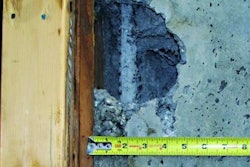Oregon, true to its history as the first state to implement a gas tax, was also the first state to consider getting rid of it — in exchange for adopting a mileage-based system for highway funding. And the Beaver state isn't alone: A number of other states have done studies and introduced legislation to charge drivers for the distance they travel instead of the gasoline they consume.
To date, none of the states have passed legislation to enact a vehicle miles traveled (VMT) fee. But with an increase in the federal gas tax seemingly impossible in an election year and federal funding increasingly uncertain, states may well be left with little alternative but to reconsider an idea that many experts agree make sense.
With Americans driving less and opting for more fuel-efficient cars, revenues from state gas taxes have been on the decline. Data from the Federal Highway Administration show that between 2007 and 2008, 30 of 50 states experienced declines in their gas tax receipts, dropping by an average of two percent. If electric cars one day replace America’s internal combustion fleet entirely, revenues based on gas taxes could dry up altogether.
For many states, VMT fees may be just what the doctor ordered. While the prospect of a mileage-based system has led some to argue that the GPS technology needed to make it work optimally is an invasion of privacy, there is a growing consensus that it is a much more sustainable option for transportation funding. Earlier this year, the Congressional Budget Office issued a report stating that the VMT fee system is a feasible transportation funding option and would result in a more efficient use of the highway system. This follows several earlier reports, including from two federal transportation financing commissions, recommending that the federal gas tax be gradually replaced with VMT fees

















